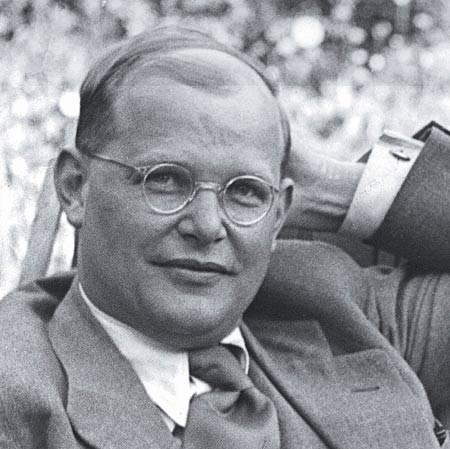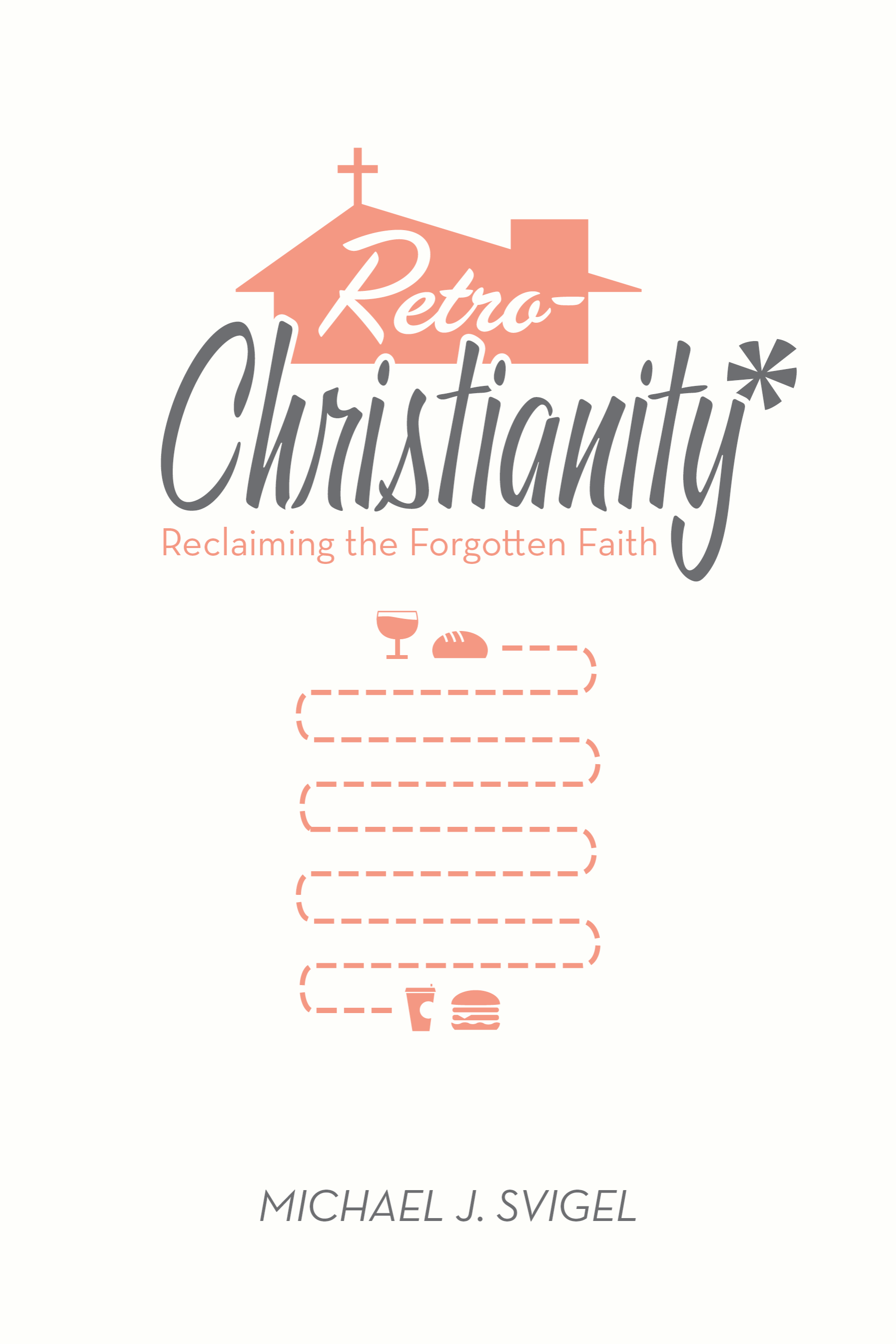The more one comes to know and understand Dietrich Bonhoeffer, the harder it becomes to deny a certain prophetic gift he had for understanding the problems in the church for years to come. He was writing and pastoring in the dawning age of modern theological liberalism, and this is evident in his critiques of the church of his day. What were only budding theological errors and problems in his day have now taken full bloom. Indeed, one wonders that if he was able to write “There is no theology here” about the teachings of Union Theological Seminary in 1929, what would he say about much of the Western Evangelical Church today?
These same kinds of questions appear in our minds when we approach Bonhoeffer’s classic The Cost of Discipleship. If the issue of cheap grace was apparent in his day, what would he think about our shallow proclamations of the gospel today? What would he make of the lordship salvation issue that was prominent in the late 80’s and early 90’s, that still invades many evangelical churches today, teaching that we can be a Christian but not a disciple? What would he make of the law-grace debates that blow up the Christian blogosphere every 6 months? Well, when we turn to the opening chapter of Discipleship, we have our answer. He’d lament the malignant state of the church.
Bonhoeffer understood the deep, necessary relationship between justification and sanctification in the Christian life. When these two aspects of our union with Christ are separated, we are left with cheap grace – “bargain-basement goods, cut-rate forgiveness, cut-rate comfort, cut-rate sacrament.” Cheap grace is left only as a system to take advantage of, where justification now no longer means the justification of the sinner, but of sin itself. Thus nothing about our sinful lives needs to change. If we change our lives to conform to the commandments of Jesus Christ, then we no longer trust in cheap grace, and that becomes too uncomfortable. So long as we conform to the world, we can still accept cheap grace and assure ourselves that our sins are forgiven. Within the bounds of a system of cheap grace, there is now forgiveness without repentance, baptism without discipline, and the Lord’s Supper without confession of sin.
Yet this is strikingly different than the kind of grace we should be accustomed to! The grace lived out in the Christian life is not a cheap grace, but a costly grace. “It is costly, because it calls to discipleship; it is grace, because it calls us to follow Jesus Christ. It is costly, because it costs people their lives; it is grace, because it thereby makes them live…Above all, grace is costly, because it was costly to God, because it costs God the life of God’s Son – and because nothing can be cheap to us which is costly to God.” If grace was costly for God, it is costly to us, which means we must strive for obedience to Christ’s commandments.
Martin Luther understood the problem with cheap grace, and Bonhoeffer explains his system of thought well. Luther understood that grace is the “result given by Christ himself to Christian life,” which means our life is not excused from discipleship in any way. Too many people instead take grace as a presupposition, therefore excusing any sin that they commit. Luther knew that we “sin boldly,” yet should believe and rejoice in Christ even more boldly. There is no escaping being a sinner in this life, yet we believe and rejoice in Christ and strive for obedience to him all the same.
Dietrich certainly knew of the problems facing the rising liberalism in churches of his day. We would be wise to meditate on his words and corrections for the church. He saw the cusp of the dam that has overflowed today, “Is the price that we are paying today with the collapse of the organized churches anything else but an inevitable consequence of grace acquired too cheaply? We gave away preaching and sacraments cheaply; we performed baptisms and confirmations; we absolved an entire people, unquestioned and unconditionally; out of human love we handed over what was holy to the scornful and unbelievers. We poured out rivers of race without end, but the call to rigorously follow Christ was seldom heard.”
If we surveyed the Evangelical landscape today, could this not be a summary of the problems we are facing today? Shallow churches that preach a shallow gospel, with little commitment other than an occasional stop at the church to be assured that our sins are still forgiven? Perhaps if we recognized that “the word of cheap grace has ruined more Christians than any commandment about works,” we would do a better job at stopping this train in its tracks. If we realized that living under grace means striving to live in the world without losing ourselves to it; if we realized that living under grace means giving up our lives for the one who laid down his life for us, we would have a better understanding of grace. Not a cheap grace, but a costly grace. As Bonhoeffer says, “Blessed are they for whom following Jesus Christ means nothing other than living from grace and for whom grace means following Christ.”
The following is an excerpt from Michael Svigel’s Retro Christianity, pages 213-214.
God has gifted individual believers in such a way that we need each other for accomplishing the tasks of evangelism, edification, and exaltation. To put it bluntly: God never intended for one person to do it all. As far as spiritual gifts go, we’re not called to be either a violin soloist or a one-man-band. Paul said, “God arranged the members in the body, each one of them, as he chose” (1 Cor. 12:18). This means God has placed you into his church for specific purposes. But those purposes are inseparably linked to the gifts and purposes of all other believers. We must depend on each other – really depend on each other. We’re not just a single performer standing in the spotlight or an individual soloist dutifully playing an important part. By his sovereign design, God purposed that our unique spiritual gifts complement each other, like members of a jazz quartet or a chamber orchestra.
In fact, let me takes this in a direction you may not have considered before. Instead of taking spiritual gift inventories simply to determine our personal giftedness, maybe we should also take note of our un-giftedness – those areas of weakness for which we desperately need others. As we survey our ministry goals, build our ministry teams, and then begin to minister, we need to be sensitive not only to our strengths, but also to our weaknesses.
But this demands the most difficult part of the equation: humility.
It takes humility to say, “I’m a teacher, but I’m a lousy administrator.” Who wants to be a lousy anything? It takes a humble spirit to say, “I’m good at hospitality, but I have trouble discerning people’s needs.” And it takes an extra portion of meekness to turn this admission into a plea for help from those who are strong in those areas.
But matching a person’s gifts to a particular ministry is only a first step. We must also match believers’ gifts with other believers’ ungiftedness. This leads to three practical actions we can take.
First, have you matched your gifts with the right ministry needs for the edification of the body? if not, do it. There’s a gap that needs to be filled even as you read these words. Or, perhaps worse, a frustrated saint is dutifully holding your place until the right fit comes along. It’s time for you to report for duty.
Second, if you’ve already matched your gifts with the right ministry, have you unwittingly adopted the “axe and hose” principle? Are you trying to do it all, forgetting that God intentionally un-gifted you in certain areas so other believers can complement your ministry? What are your weaknesses? Who can you ask to fill that need and free you to do what God meant for you to do?
Finally, if you’ve made your match and humbly built your team, are there others who need your help making their own matches? Gently encourage people to step up to the plate. Ask how they’re fitting into the essential works of the church. Find out if they’re frustrated in their roles. Playing “matchmaker” will not only help gifted saints, but it will also minister to the entire body of Christ.
The following is an excerpt from Michael Svigel’s RetroChristianity, pages 90-91.
As strange as it may sound, the center of some branches of evangelicalism seems to have moved toward the fringe of classic orthodox Christianity. In short, many evangelical churches are appearing increasingly more evangelical, but increasingly less Christian.
You see, the center of Christianity has always been Jesus Christ. It is not the Bible. It is not expository preaching. It is not a personal response to the gospel message. As important as all of these are for supporting the center, the focal point of right Christian faith is God the Son who became man, lived a life of perfect righteousness, revealed the Father, died for our sins, rose from the dead, ascended into heaven, bequeathed the Spirit, and will come again. Through Christ we understand the Bible as the inspired and inerrant Word of God that points us to him. Through Christ we encounter the Triune God of Father, Son, and Holy Spirit. Through Christ we have salvation and forgiveness of sins by grace through faith alone. Through Christ we are empowered to live a regenerated life by his Spirit. Through Christ we are incorporated into the church and receive instruction and power to carry out its mission. Through Christ we have a proper view of the depravity and neediness of fallen humanity as well as the ideal model and ultimate pattern of redeemed humanity. Through Christ we can anticipate the new world to come, when this fallen cosmos will be redeemed by his power and glory.
Don’t misunderstand me. I love the inerrant Word of God, powerful expository preaching, a clear presentation of the gospel of grace through faith, and all the things that mark me as an evangelical. Nevertheless, to the degree that evangelicalism has put “me and my Bible” at the center of the Christian worldview, it has removed Jesus Christ from the center. To the degree that is has focused on a personal, voluntary, and free-will response to bare-bones gospel presentation, evangelicalism has reduced the profound person and work of Jesus Christ to mere propositions to be preached and data to be processed. To the degree that evangelicals have modeled their methods and structures after cultural forms supported by a few proof-texts, they have failed to measure them against the one model of all things human and perfect: Jesus Christ.
What if evangelicalism has unwittingly drifted not into heresy per se, but into a heterodox emphasis on things that were always meant to orbit around Jesus Christ and point to him? What if twenty-first-century evangelicals have replaced the Christ-centered community of faith and faithfulness with an insidious me-centered individualistic philosophy? What if the means of expressing the faith has become the faith itself? What if evangelicals have gone the way of nineteenth-century liberalism and have drifted from a conscious continuity with the great tradition of the church that has always placed Jesus Christ at the center of all things? What if we’ve gone so far astray that everything I’m writing now actually sounds “liberal” to you? In short, what if the “center” of much evangelicalism has actually migrated toward the “fringe” of authentic, historical, orthodox Christianity?
If You hadn’t rescued me;
yes, You rescued me – that is key.
Never would I have known the difference between love and pain,
true feelings a heart of stone could not contain.
I’d probably have had more time,
but then who would I thank for this gift of rhyme?
Without You, life would be simpler – easier, even;
my existence would be absent much of my grieving.
Oh yes, Your yoke is easy and Your burden is light –
but not when I’m striving with all of my might!
If You hadn’t rescued me;
yes, You rescued me – that is key.
Never would I have met my wife,
as that curly-haired pastor says, “A parable for life.”
By all accounts my accounts would be lined,
but then You never would have been mine.
Without You, life was clean, neat – controlled;
the senseless beating of this dead soul.
Yet Your breath – new life does it bring!
Filling these collapsing lungs with the breath to sing.
If You hadn’t rescued me;
yes, You rescued me – that is key.
Never would I have laid my life down for You,
in some feeble attempt to mimic Your Son’s obedience to you.
Health, wealth, recognition – ever was I seeking!
A slithering corroboration with the fall, always repeating.
Without You, life could be whatever I made of it;
until a small spark was lit.
You knit me, now mold me; restore my eyes to see –
the glory of the One who rescued me.
Yes, You rescued me – that is key.





